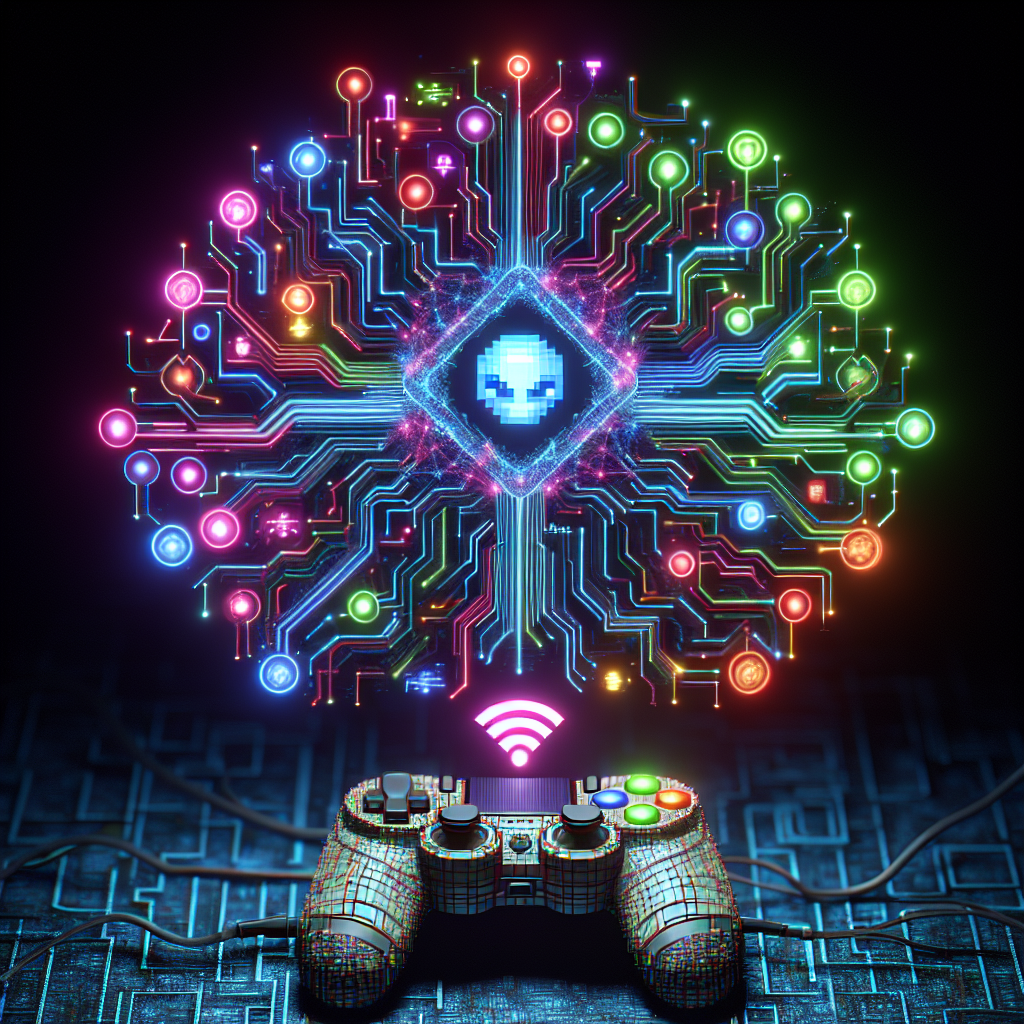Artificial intelligence (AI) algorithms have revolutionized the gaming industry by enhancing player experiences and creating more immersive and challenging gameplay. These algorithms are designed to make decisions based on pre-defined rules, patterns, and data, allowing for dynamic and adaptive gameplay that can keep players engaged for hours on end.
One of the key areas where AI algorithms are making a significant impact is in decision-making within games. Whether it’s determining the behavior of non-player characters (NPCs), optimizing game strategies, or providing personalized recommendations to players, AI algorithms play a crucial role in shaping the gaming experience.
AI Algorithms in Decision-Making in Gaming
AI algorithms in gaming can be broadly classified into two categories:
1. Rule-based algorithms: These algorithms follow a set of predefined rules and logic to make decisions within the game. For example, in a strategy game, a rule-based algorithm may determine the movement of units based on factors such as terrain, enemy positions, and resource availability.
2. Machine learning algorithms: These algorithms use data to learn and improve their decision-making capabilities over time. By analyzing player behavior, game statistics, and other relevant data, machine learning algorithms can predict player preferences, optimize game difficulty, and create dynamic gameplay experiences.
Some of the common AI algorithms used in decision-making in gaming include:
1. Pathfinding algorithms: Pathfinding algorithms are used to determine the optimal path for NPCs or player characters to navigate through a game environment. Algorithms like A* (A-star) and Dijkstra’s algorithm are commonly used to calculate the shortest path between two points while avoiding obstacles.
2. Decision tree algorithms: Decision trees are a popular tool for modeling decision-making processes in games. By breaking down decisions into a series of yes/no questions, decision tree algorithms can determine the best course of action for NPCs or players based on their current state and objectives.
3. Reinforcement learning algorithms: Reinforcement learning algorithms are used to train AI agents to make decisions by rewarding or punishing them based on their actions. In gaming, reinforcement learning algorithms can be used to teach NPCs to adapt to changing game conditions, learn new strategies, and improve their performance over time.
4. Genetic algorithms: Genetic algorithms are a type of optimization algorithm inspired by the process of natural selection. In gaming, genetic algorithms can be used to evolve AI behaviors by breeding and mutating different strategies to find the most effective solution to a given problem.
Benefits of AI Algorithms in Decision-Making in Gaming
The use of AI algorithms in decision-making in gaming offers several benefits for both players and game developers, including:
1. Enhanced gameplay experiences: AI algorithms can create more dynamic and challenging gameplay experiences by adapting to player behavior, optimizing game strategies, and providing personalized recommendations. This can lead to more engaging and immersive gaming experiences for players.
2. Improved game balance: AI algorithms can help game developers balance the difficulty of their games by adjusting the behavior of NPCs, optimizing enemy AI, and fine-tuning game mechanics. This can prevent players from becoming frustrated or bored due to overly challenging or easy gameplay.
3. Faster development cycles: AI algorithms can automate certain aspects of game development, such as level design, enemy behavior, and player progression, allowing developers to create more content in less time. This can lead to faster release cycles and more frequent updates for players.
4. New gameplay possibilities: AI algorithms can enable new gameplay mechanics and features that would be difficult or impossible to implement using traditional methods. For example, AI-generated content, procedural generation, and adaptive difficulty systems can create unique and replayable experiences for players.
FAQs
Q: How do AI algorithms improve decision-making in gaming?
A: AI algorithms can improve decision-making in gaming by analyzing data, predicting player behavior, and adapting to changing game conditions. By leveraging machine learning, pathfinding, decision trees, and other algorithms, AI can optimize game strategies, create dynamic gameplay experiences, and enhance player engagement.
Q: Are AI algorithms used in all types of games?
A: AI algorithms are used in a wide range of games, from simple puzzle games to complex multiplayer online games. While some games may rely more heavily on AI for decision-making, others may use AI algorithms for tasks such as pathfinding, behavior modeling, or procedural generation.
Q: How can players benefit from AI algorithms in gaming?
A: Players can benefit from AI algorithms in gaming by enjoying more challenging and immersive gameplay experiences, personalized recommendations, and dynamic game content. AI algorithms can also help improve game balance, prevent player frustration, and enable new gameplay possibilities that would not be possible with traditional methods.
Q: Are there any ethical concerns related to AI algorithms in gaming?
A: Like any technology, AI algorithms in gaming raise ethical concerns related to player privacy, data security, fairness, and transparency. Game developers should be mindful of these concerns and implement safeguards to protect player rights and ensure a positive gaming experience for all.
In conclusion, AI algorithms are transforming decision-making in gaming by enabling more dynamic, challenging, and immersive gameplay experiences. By leveraging machine learning, pathfinding, decision trees, and other algorithms, game developers can create more engaging and personalized experiences for players. As AI technology continues to advance, we can expect to see even more innovative uses of AI algorithms in gaming in the future.

